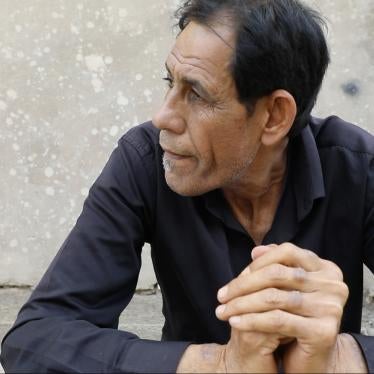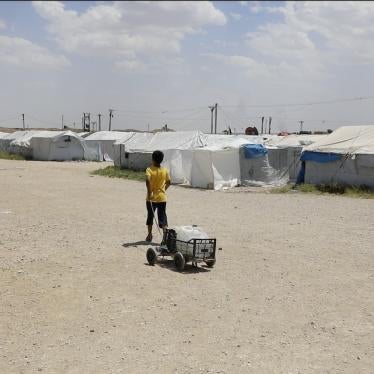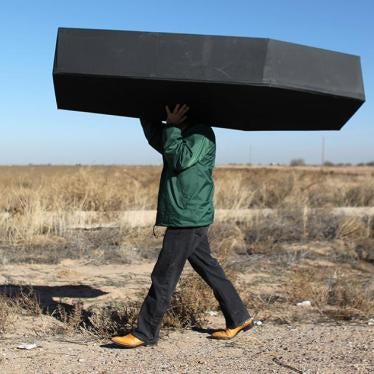Recent reports that the Netherlands is considering accepting some current Guantanamo detainees for resettlement is good news for the detainees and good news for the Netherlands. If the deal goes through it would provide some detainees who have been unlawfully held for years at the US detention facility at Guantanamo Bay with a chance to start a new productive life and encourage other countries that may be considering the same thing.
The detentions generate enormous hostility and resentment around the world and serve as a recruitment tool for extremist armed groups. Closing Guantanamo and ending indefinite detention there would take away an important rallying cry for such groups. Allowing detainees to resettle in the Netherlands would be a humane and practical step toward that goal.
It is no secret that the administration of US President Barack Obama is trying to convince other countries to take Guantanamo detainees for resettlement so that the prison can finally be closed. The continuing prolonged indefinite detentions at Guantanamo Bay have long been an embarrassment to the United States. The Dutch government and other European states have rightly called on the US to close Guantanamo. But the Dutch public may understandably question why their government—or any other—should step in to help when the US is responsible for creating and resolving the situation at Guantanamo.
The reason is simple: it’s true that the US is responsible and has ultimately failed to fix Guantanamo, but the detainees should not have to pay the price for US government failings. Many of the 122 men still at the facility have been detained there for more than 13 years without charge or trial in violation of international law. Nearly half of them have been cleared for release for years by the US military and national security agencies on the grounds that their release does not pose a security threat justifying their detention. Some have resorted to hunger strikes and are enduring painful and repeated forced feedings to protest their unlawful detention. If the Netherlands—indeed, any country—can do something to help put an end to this unjust situation, it should. Such a move would be in line with the Netherlands’ strong tradition of humanitarianism.
Unfortunately, for years domestic political dynamics in the United States have made serious discussion about a solution for Guantanamo detainees—and in particular resettling them in the US—nearly impossible. The US Congress, currently controlled by President Obama’s rival Republican Party, has blocked the Obama administration from moving Guantanamo detainees to the United States for any purpose—trial, detention or resettlement. Accordingly, the only way to resettle detainees is to transfer them to their home countries—which is often impossible due to the risk of torture or persecution—or to third countries. As a result, it is critical for other countries to step in and accept these detainees to get them out of Guantanamo.
Political events in the United States, including the 2016 presidential election, could make closing Guantanamo even more difficult. The US Congress is now considering new legislation that would make transferring detainees out of Guantanamo to any country for resettlement virtually impossible. In fact the US House of Representatives, the lower chamber of the US Congress, just last week passed its version of a bill that would essentially bar any transfers out of Guantanamo to any country, anywhere, for the next two years. The Senate’s not-yet-passed version is slightly better, but at some point, when the two bills are reconciled in the coming months, it seems certain that more restrictions on transferring detainees out of Guantanamo will be imposed. If so they would likely be in place after the Obama administration ends. Further, some presidential candidates have indicated that if elected they would keep Guantanamo open and even send more detainees there.
This means that the window of opportunity for ending indefinite detention at Guantanamo is narrowing. Countries that are interested in helping should do so now—not only for humanitarian reasons, but because of their shared security interests.
The Netherlands has the opportunity now to help to right a terrible wrong and encourage other countries to do the same – that example is very much needed right now.








